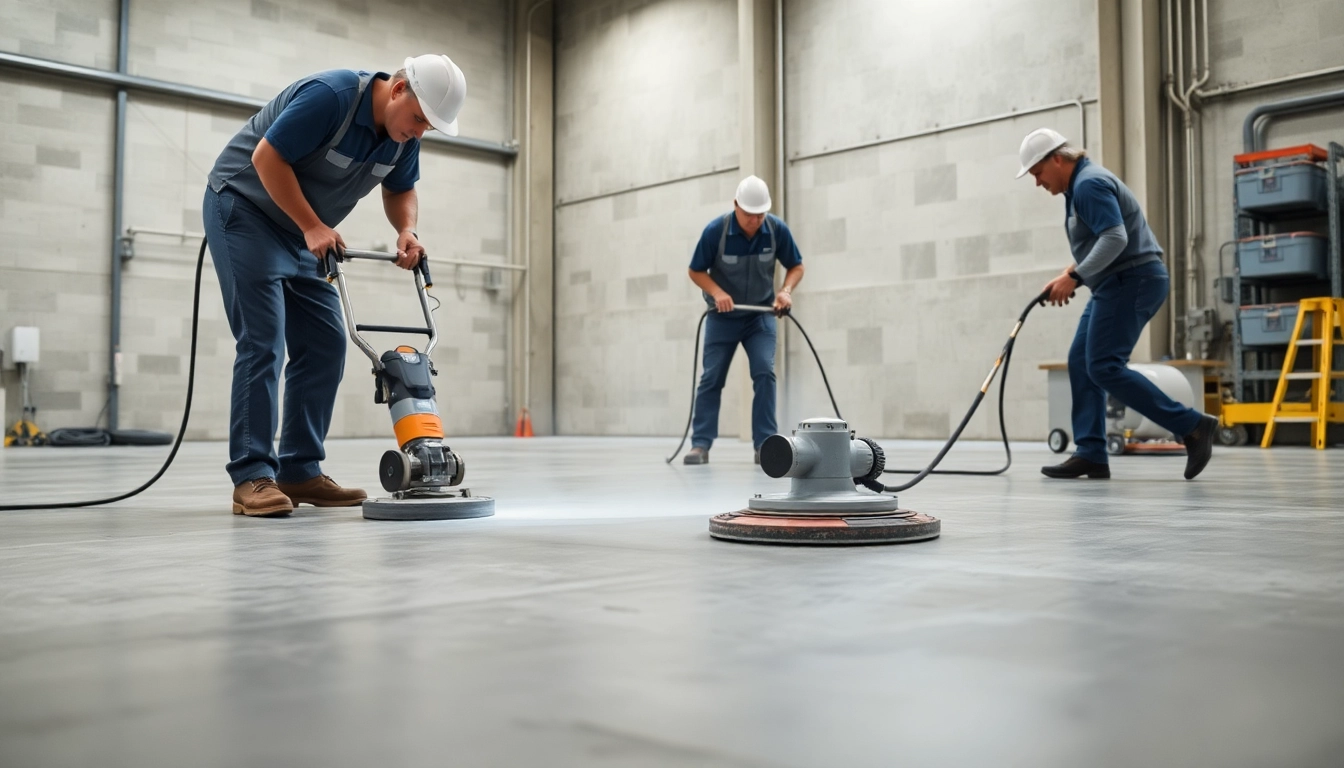Understanding Floor Preparation in Birmingham
Efficient floor preparation is the crucial foundation of any successful flooring project in Birmingham. Whether you’re installing new hardwood, vinyl plank, epoxy coatings, or resin floors, the integrity and longevity of your floor depend heavily on how well the surface beneath it has been prepared. Floor preparation Birmingham involves various techniques designed to ensure that the substrate is clean, level, and sound before the final flooring layers are applied.
Why Proper Floor Preparation Matters for Your Projects
Proper floor preparation transcends mere surface cleaning; it addresses underlying issues such as cracks, unevenness, contamination, and moisture that can compromise your flooring’s performance. Skimping on this step can lead to costly failures including bubbling, delamination, or premature wear. For example, an uneven substrate can cause uneven wear in hardwood floors or reduce adhesion in resin coatings, leading to visible defects and shorter lifespan.
Common Floor Preparation Techniques Used in Birmingham
Birmingham’s diverse building sector demands a variety of surface preparation methods tailored to specific subfloors and flooring types. Common techniques include:
- Cleaning and debris removal: Essential for eliminating dust, grease, and loose material.
- Concrete repairs: Filling cracks, chips, or holes using specialized cementitious compounds.
- Grinding and shot blasting: Leveling and creating a textured surface to improve adhesion.
- Moisture mitigation: Applying vapor barriers and moisture barriers in damp environments.
- Leveling screeds and self-leveling compounds: For smoothing uneven surfaces.
How Floor Conditions Impact Final Flooring Quality
The condition of your subfloor directly affects adhesion, durability, and safety of the installed flooring. Issues such as residual moisture, oil contamination, or loose debris can cause adhesion failures that compromise your investment. For instance, in Birmingham, many commercial and industrial spaces require meticulous floor prep to handle heavy traffic, chemical exposure, or high moisture levels. Proper preparation ensures the final floor remains intact, safe, and visually appealing over time.
Steps for Effective Floor Preparation in Birmingham
Initial Surface Inspection and Assessment
Every successful floor prep begins with a thorough inspection. Professionals assess the subfloor’s condition — checking for cracks, moisture levels, contamination, and structural integrity. In Birmingham, this often involves moisture testing with hygrometers, especially in concrete slabs, to prevent future problems. A detailed assessment helps determine the most suitable preparation methods and materials.
Surface Cleaning and Repair Methods
Cleaning involves removing dust, dirt, oils, and old adhesives. Diamond grinding ensures the surface is free of laitance or sealers, creating a roughened profile ideal for adhesion. Repairs might include patching cracks with epoxy or cement-based fillers. In high-traffic Birmingham commercial spaces, durable repair materials are essential for long-term performance.
Leveling and Grinding Procedures
Uneven floors can cause issues with most flooring types. Diamond grinding removes high spots, ensuring a flat, level surface. Self-leveling compounds can fill minor dips and valleys. In Birmingham’s diverse construction environment, employing precision leveling techniques is vital for achieving a smooth, even foundation that guarantees professional results.
Choosing the Right Floor Preparation Service in Birmingham
Factors to Consider Before Hiring a Contractor
When selecting a floor preparation specialist, evaluate their experience, accreditation, and reputation. Local companies possess specific knowledge of Birmingham’s building codes, moisture challenges, and common subfloor issues. Check for certifications such as NBF (National Flooring Association) or FIBA (Flooring Installation Business Accreditation). Ensure they use appropriate equipment and high-quality materials for your project.
Questions to Ask Potential Service Providers
- What preparation techniques will you use for my flooring type?
- How do you handle moisture testing and mitigation?
- Can you provide references or case studies of similar projects?
- What is the estimated timeline and cost?
- How do you ensure safety and environmental standards?
Benefits of Working with Local Experts
Local providers in Birmingham understand regional climate challenges, building regulations, and the unique demands of both residential and commercial settings. They can respond promptly to project needs, provide tailored solutions, and offer ongoing support. This local expertise often results in higher quality workmanship, greater accountability, and better value for your investment.
Best Practices and Industry Standards
Ensuring Compliance with Building Regulations
Adherence to UK building standards, including regulations on moisture barriers, fire safety, and structural stability, is mandatory. Experienced Birmingham contractors ensure that your floor prep complies with all local codes, avoiding costly penalties or rework. Staying certified and updated on industry standards ensures that your project is both legal and durable.
Advances in Floor Preparation Technologies
Modern equipment like laser-guided grinders, moisture meters, and eco-friendly repair materials enable faster, safer, and more precise preparation. These innovations reduce downtime and improve overall quality. For example, high-performance diamond tooling ensures minimal dust and noise, complying with health and safety standards prevalent in Birmingham’s construction sites.
Maintaining Quality and Safety During Preparation
Proper PPE, dust management systems, and closed environments during grinding and repair procedures safeguard workers and occupants. Regular quality audits and adherence to safety protocols are essential for minimizing accidents and achieving the desired surface quality.
Performance Metrics and How to Measure Success
Evaluating Surface Smoothness and Levelness
Tools like straightedges, laser levels, and digital profilometers can measure flatness with precision. A surface should ideally have a deviation of less than 3mm across a 2-meter span. Consistent flatness ensures even coverage and reduces issues like bubbling or cracking in the final flooring.
Monitoring Adhesion and Durability of Final Flooring
Adhesion is tested through pull-off tests, ensuring bonding strength meets industry standards. Durability assessments involve observing how well the prepared surface withstands environmental factors and foot traffic over time. Regular inspections and client feedback are crucial for ongoing performance evaluation.
Client Satisfaction and Long-term Results
Ultimately, the success of floor preparation is reflected in the longevity and appearance of the final floor. High customer satisfaction, minimal repairs, and positive reviews indicate effective preparation. Case studies highlight how professional prep in Birmingham has led to commercial spaces enduring decades of use without issues.



